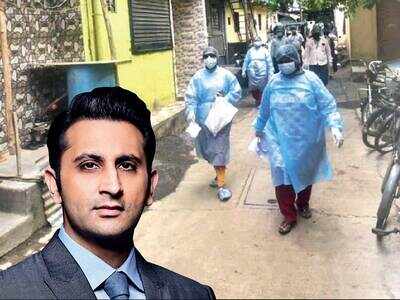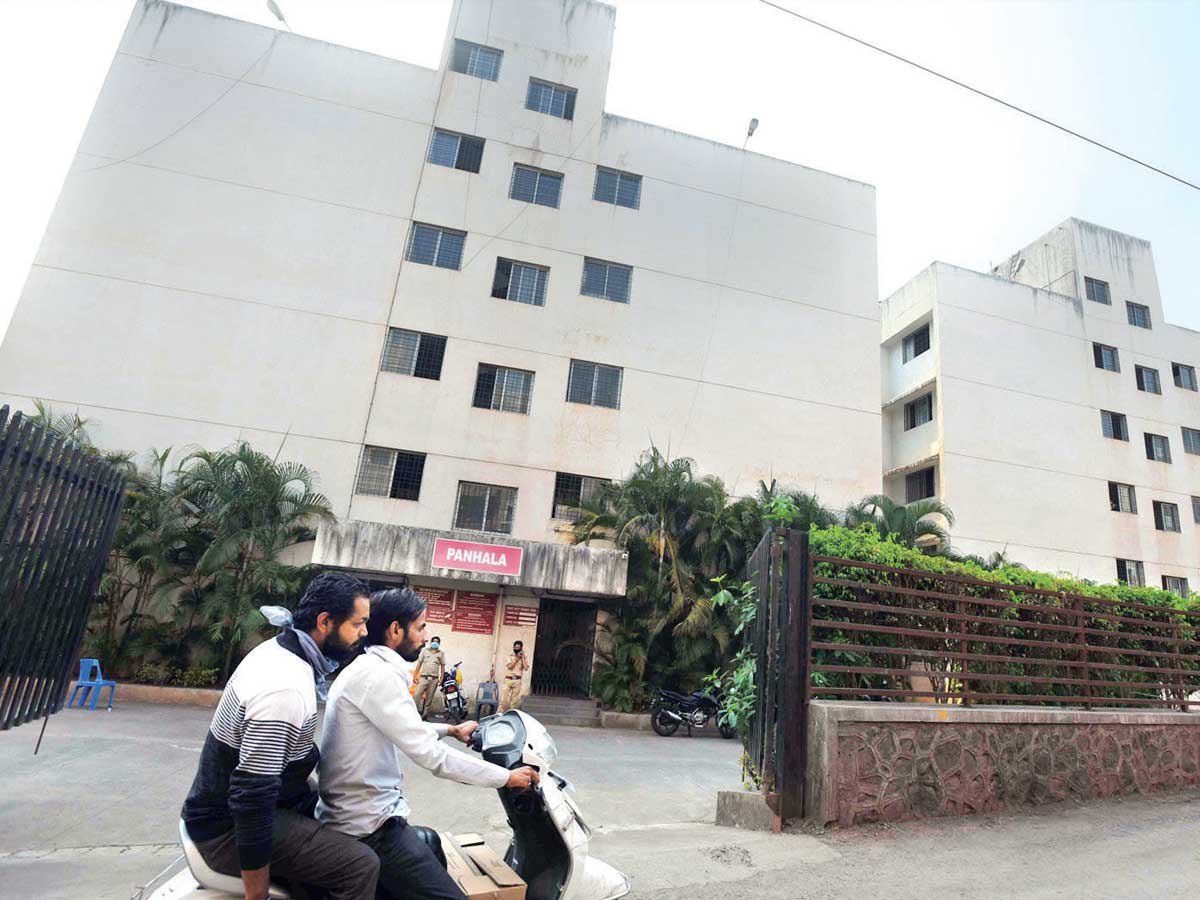Serum to apply for trials, to manufacture vaccine

Adar Poonawalla, CEO of Pune-based Serum Institute of India
After the success of the phase 1 trials of the Oxford vaccine for SarsCov2, all eyes are now on Pune
After months of research across the world on developing the crucial COVID-19 vaccine, all eyes are now on Pune, as Serum Institute of India is all set to begin manufacturing the vials key to immunising people against thepandemic .
In research published on Monday in The Lancet, scientists said they found that their experimental COVID-19 vaccine produced a dual immune response in people aged between 18 and 55 that lasted at least two months after they were immunised. “We are seeing a good immune response in almost everybody,” said Dr Adrian Hill, director of the Jenner Institute at Oxford University. “What this vaccine does particularly well is trigger both arms of the immune system,” he said.
Hill said Oxford has partnered with drug-maker AstraZeneca to produce their vaccine globally, and that the company has already committed to making 2 billion doses. “Even 2 billion doses may not be enough,” he said, underlining the importance of having multiple shots to combat thecoronavirus , given the ongoing surge of infections worldwide. “I think it’s going to be very difficult to control this pandemic without a vaccine.”
Commenting on AstraZeneca Oxford Vaccine’s results, Adar Poonawalla, CEO of Pune-based Serum Institute of India, said, “The trials have shown promising results. We are extremely happy about it. We will apply for the licensure trials to the Indian regulator in a week’s time. As soon as they grant us permission, we will begin with the trials for the vaccine in India. In addition, we will soon start manufacturing the vaccine in large volumes.”
About the tie-up that Serum Institute of India, world’s largest vaccine manufacturer, had with Oxford University, Poonawalla added, “In May, Oxford officially licensed to AstraZeneca, with which we had a tie-up later. As of now, we will manufacture 1 billion doses over the next one year for India and other low- and middle-income countries. We also estimate to make about 400 million doses by the end of this year of which 50 per cent will be reserved for India.”
The British researchers first began testing the vaccine in April in about 1,000 people, half of whom got the experimental vaccine. Such early trials are designed to evaluate safety and see what kind of immune response was provoked, but can’t tell if the vaccine truly protects.
Hill said that neutralising antibodies are produced - molecules which are key to blocking infection. In addition, the vaccine also causes a reaction in the body’s T-cells, which help by destroying cells that have been taken over by the virus. The experimental COVID-19 vaccine caused minor side effects like fever, chills and muscle pain more often than in those who got acontrol meningitis vaccine.
Hill said that larger trials evaluating the vaccine’s effectiveness, involving about 10,000 people in the UK as well as participants in South Africa and Brazil are still underway. Another big trial is slated to start in the US soon, aiming to enrol about 30,000 people.
The paper, titled ‘Safety and immunogenicity of the ChAdOx1 nCoV-19 vaccine against SARSCoV-2: a preliminary report of a phase 1/2, single-blind, randomised controlled trial’, has been written jointly by 32 scientists of Oxford COVID Vaccine Trial Group.
“There is still much work to be done before we can confirm if our vaccine will help manage the COVID-19 pandemic, but these early results hold promise,” said professor Sarah Gilbert, co-author of the study. “As well as continuing to test our vaccine in phase 3 trials, we need to learn more about the virus – for example, we still do not know how strong an immune response we need to provoke to effectively protect against SARS-CoV-2 infection. If our vaccine is effective, it is a promising option as these types of vaccine can be manufactured at large scale,” she said.
Scientists behind the trials found the response could be even greater after a second dose. “The Phase I/II data for our coronavirus vaccine shows that the vaccine did not lead to any unexpected reactions and had a similar safety profile to previous vaccines of this type. The immune responses observed following vaccination are in line with what previous animal studies have shown are associated with protection against the SARS-CoV-2 virus, although we must continue with our rigorousclinical trial programme to confirm this in humans,” said professor Andrew Pollard, chief investigator of the Oxford Vaccine Trial at Oxford University and co-author of the study. “We saw the strongest immune response in the 10 participants who received two doses of the vaccine, indicating that this might be a good strategy for vaccination,” he said.
The project has been bolstered by 84 million pounds of UK government funding to help accelerate the vaccine’s development.
How quickly scientists are able to determine the vaccine’s effectiveness will depend largely on how much more transmission there is, but Hill estimated that if there were enough data to prove the vaccine’s efficacy, immunization of some high-risk groups in Britain could begin in December. He said the vaccine seemed to produce a comparable level of antibodies to those produced by people who recovered from a COVID-19 infection and hoped that the T-cell response would provide extra protection.
After months of research across the world on developing the crucial COVID-19 vaccine, all eyes are now on Pune, as Serum Institute of India is all set to begin manufacturing the vials key to immunising people against the
In research published on Monday in The Lancet, scientists said they found that their experimental COVID-19 vaccine produced a dual immune response in people aged between 18 and 55 that lasted at least two months after they were immunised. “We are seeing a good immune response in almost everybody,” said Dr Adrian Hill, director of the Jenner Institute at Oxford University. “What this vaccine does particularly well is trigger both arms of the immune system,” he said.
Hill said Oxford has partnered with drug-maker AstraZeneca to produce their vaccine globally, and that the company has already committed to making 2 billion doses. “Even 2 billion doses may not be enough,” he said, underlining the importance of having multiple shots to combat the
Commenting on AstraZeneca Oxford Vaccine’s results, Adar Poonawalla, CEO of Pune-based Serum Institute of India, said, “The trials have shown promising results. We are extremely happy about it. We will apply for the licensure trials to the Indian regulator in a week’s time. As soon as they grant us permission, we will begin with the trials for the vaccine in India. In addition, we will soon start manufacturing the vaccine in large volumes.”
About the tie-up that Serum Institute of India, world’s largest vaccine manufacturer, had with Oxford University, Poonawalla added, “In May, Oxford officially licensed to AstraZeneca, with which we had a tie-up later. As of now, we will manufacture 1 billion doses over the next one year for India and other low- and middle-income countries. We also estimate to make about 400 million doses by the end of this year of which 50 per cent will be reserved for India.”
The British researchers first began testing the vaccine in April in about 1,000 people, half of whom got the experimental vaccine. Such early trials are designed to evaluate safety and see what kind of immune response was provoked, but can’t tell if the vaccine truly protects.
Hill said that neutralising antibodies are produced - molecules which are key to blocking infection. In addition, the vaccine also causes a reaction in the body’s T-cells, which help by destroying cells that have been taken over by the virus. The experimental COVID-19 vaccine caused minor side effects like fever, chills and muscle pain more often than in those who got acontrol meningitis vaccine.
Hill said that larger trials evaluating the vaccine’s effectiveness, involving about 10,000 people in the UK as well as participants in South Africa and Brazil are still underway. Another big trial is slated to start in the US soon, aiming to enrol about 30,000 people.
The paper, titled ‘Safety and immunogenicity of the ChAdOx1 nCoV-19 vaccine against SARSCoV-2: a preliminary report of a phase 1/2, single-blind, randomised controlled trial’, has been written jointly by 32 scientists of Oxford COVID Vaccine Trial Group.
“There is still much work to be done before we can confirm if our vaccine will help manage the COVID-19 pandemic, but these early results hold promise,” said professor Sarah Gilbert, co-author of the study. “As well as continuing to test our vaccine in phase 3 trials, we need to learn more about the virus – for example, we still do not know how strong an immune response we need to provoke to effectively protect against SARS-CoV-2 infection. If our vaccine is effective, it is a promising option as these types of vaccine can be manufactured at large scale,” she said.
Scientists behind the trials found the response could be even greater after a second dose. “The Phase I/II data for our coronavirus vaccine shows that the vaccine did not lead to any unexpected reactions and had a similar safety profile to previous vaccines of this type. The immune responses observed following vaccination are in line with what previous animal studies have shown are associated with protection against the SARS-CoV-2 virus, although we must continue with our rigorous
The project has been bolstered by 84 million pounds of UK government funding to help accelerate the vaccine’s development.
How quickly scientists are able to determine the vaccine’s effectiveness will depend largely on how much more transmission there is, but Hill estimated that if there were enough data to prove the vaccine’s efficacy, immunization of some high-risk groups in Britain could begin in December. He said the vaccine seemed to produce a comparable level of antibodies to those produced by people who recovered from a COVID-19 infection and hoped that the T-cell response would provide extra protection.
GALLERIES View more photos











































Recent Messages ()
Please rate before posting your Review
SIGN IN WITH
Refrain from posting comments that are obscene, defamatory or inflammatory, and do not indulge in personal attacks, name calling or inciting hatred against any community. Help us delete comments that do not follow these guidelines by marking them offensive. Let's work together to keep the conversation civil.